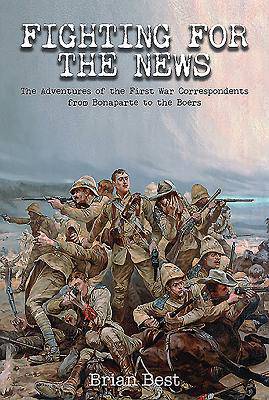
- Retrait gratuit dans votre magasin Club
- 7.000.000 titres dans notre catalogue
- Payer en toute sécurité
- Toujours un magasin près de chez vous
- Retrait gratuit dans votre magasin Club
- 7.000.0000 titres dans notre catalogue
- Payer en toute sécurité
- Toujours un magasin près de chez vous
Fighting for the News
The Adventures of the First War Correspondents from Bonaparte to the Boers
Brian Best
Livre relié | Anglais
27,95 €
+ 55 points
Description
It is now two centuries since a newspaper conceived the idea of sending a reporter overseas to observe, gather information and write about war. With no experience to draw upon, both newspaper and correspondent gradually worked out a procedure that has evolved into today's incredibly sophisticated and unrecognizable form. The first special correspondent employed by a newspaper to gather information about a current war was Henry Crabb Robinson. In 1807, the proprietor of The Times, John Walter II, sent this thirty-two-year-old lawyer to act as their 'man in Germany', ostensibly to follow and report the movements of Napoleon's Grande Armée. He was almost arrested, escaping from the Continent in disguise, the first of the many exploits and adventures of this bold group of individuals undertook to bring news from the seat of war. This included William Russell in the Crimean War, whose reports helped bring down the Government, and perhaps the most famous correspondent of all, Winston Churchill, who reported on conflicts in Cuba, the Indian frontier, Sudan and the Boer War.
Spécifications
Parties prenantes
- Auteur(s) :
- Editeur:
Contenu
- Nombre de pages :
- 248
- Langue:
- Anglais
Caractéristiques
- EAN:
- 9781848324374
- Date de parution :
- 04-11-16
- Format:
- Livre relié
- Format numérique:
- Genaaid
- Dimensions :
- 160 mm x 236 mm
- Poids :
- 566 g

Les avis
Nous publions uniquement les avis qui respectent les conditions requises. Consultez nos conditions pour les avis.






